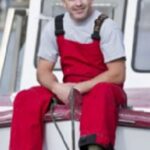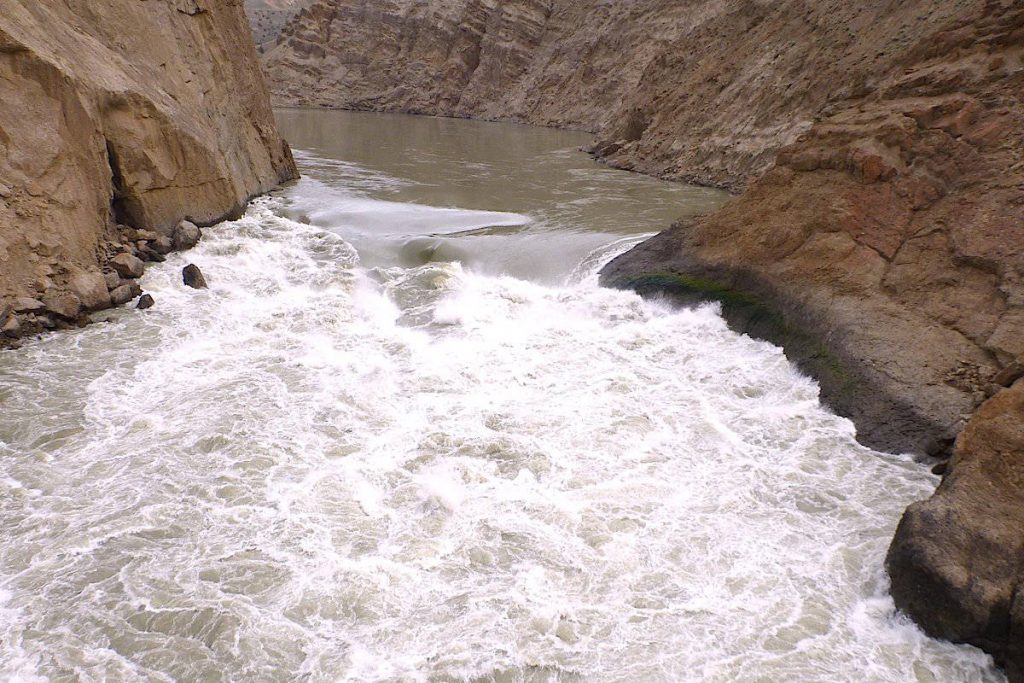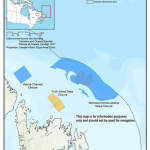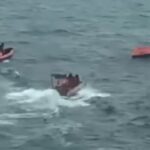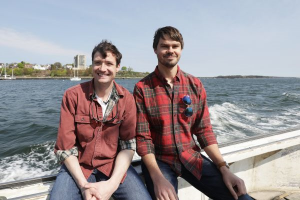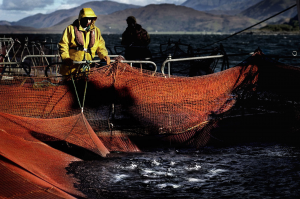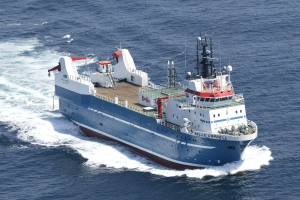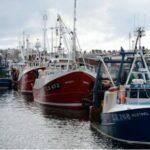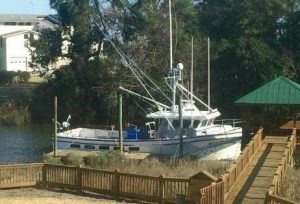Tag Archives: David Goethel
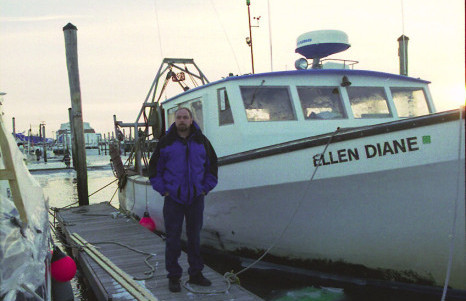
Fisherman David Goethel takes case to US Supreme Court
After losing a lawsuit alleging a federal agency has imposed unfair regulations, Hampton fisherman David Goethel is taking his case to the U.S. Supreme Court. Cause of Action Institute, which is representing Goethel and a group of other fishermen pro bono, filed a petition to be taken up by the Supreme Court Tuesday. The suit was originally filed in U.S. District Court against the National Oceanic and Atmospheric Administration and U.S. Department of Commerce in 2015. It alleges NOAA unfairly requires commercial groundfishermen to fund at-sea monitors to join them on fishing trips and observe their compliance with regulations. click here to read the story 15:52

Fisherman, lawyers mull new at-sea monitoring suit
They lost in U.S. District Court in New Hampshire last summer and failed to have that decision overturned in federal appeals court in Boston this spring. Still, New Hampshire groundfisherman David Goethel and his legal team may not be done in their legal challenge of the federal government’s ability to shift the costs of at-sea monitoring to groundfishermen. “We’re still assessing all of our legal options at this point,” said Julie Smith, one of the lawyers from Washington D.C.-based Cause of Action Institute that has represented Goethel and Northeast Fishing Sector 13 in the initial federal lawsuit and appeal. Smith declined to be more specific, but clearly the options are limited: Goethel and his lawyers could swing for the fences and petition the U.S. Supreme Court to hear their case, hoping it would overturn the April decision by the U.S. Court of Appeals upholding the judgment in the original lawsuit filed in U.S. District Court in Concord, New Hampshire. click here to read the story 08:57
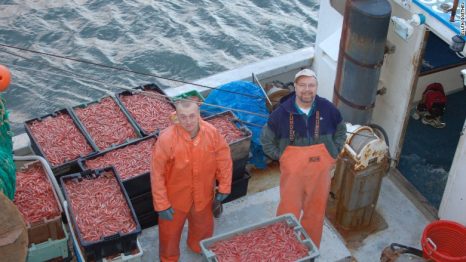
No shrimp today: Maine’s waters are warming and it’s costing fishermen money
David Goethel wishes he could retire. At 63, he’s been fishing off the Gulf of Maine for over 34 years. Shrimp used to be plentiful there. Back in 2000, Goethel remembers seeing 100 commercial boats out in the harbor. Now, he’s just one of a handful of local fisherman struggling to make a living. “There was life on the docks, there were people working,” lifelong fisherman Arnold Gamage, 64, agrees. “Now, it looks like a ghost town.” Maine’s fishing industry has been declining for years due to factors like overfishing and increased regulation, but there’s another culprit eating away at profits: Maine’s ocean waters are warming — and it’s killing northern shrimp. Why is the Gulf of Maine warming? Scientists aren’t certain, but Appelman and other experts suspect climate change is playing a role.,, Shrimping used to account for around 30% of Goethel’s income. While he recognizes that the ban is necessary, he still misses that extra cash. Lifelong fisherman Gary Libby is also feeling the squeeze. He’s been trying to sell his shrimp boat but no one is buying. He’s lost between 30% to 40% of his annual income since the ban was instituted. click here to read the story 08:52
U.S. First Circuit Court of Appeals Upholds Decision on Reg That Will Put 60 Percent of New England Ground Fishermen Out of Business
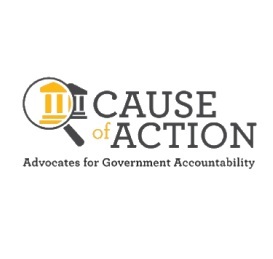 On Friday, the U.S. First Circuit Court of Appeals upheld the District Court’s ruling last summer that a lawsuit filed by Cause of Action Institute (CoA Institute) on behalf of Plaintiffs David Goethel and Northeast Fishery Sector 13 against the U.S. Department of Commerce should be dismissed. In its opinion, the Court found that the fishermen’s suit was untimely and therefore did not consider the Plaintiff’s legal arguments that requiring fishermen to pay for monitors is against the law. However, in a rare move, the judges highlighted the devastating economic impacts of the regulation in question, and urged Congress to clarify the law and who should pay for the at-sea monitors. “I am disappointed by the decision,” Goethel said. “But I’m hopeful that Congress will heed the Court’s direction and clarify the law. It is the government’s obligation to pay for these at-sea monitors.,, Northeast Fishery Sector 13 Manager John Haran said, “I’m disappointed that timeliness of the case was the Court’s deciding factor and not the merits of our arguments. The fishermen in my sector can’t sustain this industry funding requirement and many will be put out of business if this mandate remains in place.” click here to read the story 14:37
On Friday, the U.S. First Circuit Court of Appeals upheld the District Court’s ruling last summer that a lawsuit filed by Cause of Action Institute (CoA Institute) on behalf of Plaintiffs David Goethel and Northeast Fishery Sector 13 against the U.S. Department of Commerce should be dismissed. In its opinion, the Court found that the fishermen’s suit was untimely and therefore did not consider the Plaintiff’s legal arguments that requiring fishermen to pay for monitors is against the law. However, in a rare move, the judges highlighted the devastating economic impacts of the regulation in question, and urged Congress to clarify the law and who should pay for the at-sea monitors. “I am disappointed by the decision,” Goethel said. “But I’m hopeful that Congress will heed the Court’s direction and clarify the law. It is the government’s obligation to pay for these at-sea monitors.,, Northeast Fishery Sector 13 Manager John Haran said, “I’m disappointed that timeliness of the case was the Court’s deciding factor and not the merits of our arguments. The fishermen in my sector can’t sustain this industry funding requirement and many will be put out of business if this mandate remains in place.” click here to read the story 14:37
Lawsuit over fisheries observers to reach Court of Appeals in March
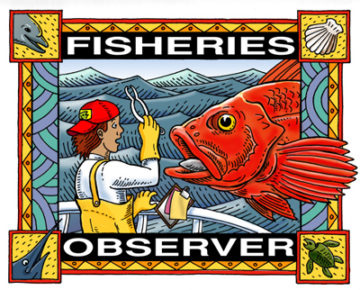 A New England fishermen’s group suing the federal government over the cost of at-sea monitoring is scheduled to present oral arguments before the federal Court of Appeals in March. The government shifted the cost of paying for monitors to fishermen last year. A group led by New Hampshire fisherman David Goethel sued the government over the rule change. The fishermen lost in federal district court and appealed. Attorneys say the arguments are set to take place March 7. Monitors can cost hundreds of dollars per day. Fishermen argue it represents an illegal new cost burden they can’t shoulder in an era of tight quotas. The rules apply to fishermen of species such as cod and sole. link 11:16
A New England fishermen’s group suing the federal government over the cost of at-sea monitoring is scheduled to present oral arguments before the federal Court of Appeals in March. The government shifted the cost of paying for monitors to fishermen last year. A group led by New Hampshire fisherman David Goethel sued the government over the rule change. The fishermen lost in federal district court and appealed. Attorneys say the arguments are set to take place March 7. Monitors can cost hundreds of dollars per day. Fishermen argue it represents an illegal new cost burden they can’t shoulder in an era of tight quotas. The rules apply to fishermen of species such as cod and sole. link 11:16
East Coast fishermen file appeal over cost of government-required ‘at-sea monitors’
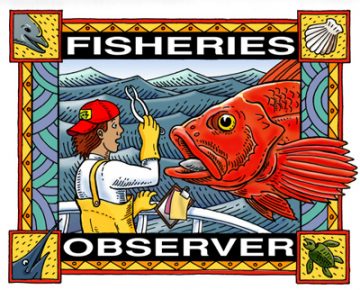 The National Oceanic and Atmospheric Administration, NOAA, requires groundfishermen — those who catch cod, haddock and other common bottom-dwelling species — to carry on board “at-sea monitors.” The observers, hired by three for-profit companies, are third-party workers whose task it is to observe fishermen’s compliance with federal regulations and ensure annual quotas are not exceeded. The dispute lies in the cost of the monitors and who should pay for them: Fishermen are billed on average $700 a day when a regulator is present. NOAA, meanwhile, says monitors were placed on fishing boats like Goethel’s only 14 percent of the time in 2016 — and claims the fishing industry supported this system of regulation in 2010 when a vote went before the New England Fishery Management Council, an advisory board to NOAA that sets the rules. “At sea monitors were originally supported by the sectors when we went from a days-at-sea form of management to a quota based form of management in 2010,” said John Bullard, the regional administrator for NOAA’s Greater Atlantic Regional Fisheries Office. Read the story here 14:22
The National Oceanic and Atmospheric Administration, NOAA, requires groundfishermen — those who catch cod, haddock and other common bottom-dwelling species — to carry on board “at-sea monitors.” The observers, hired by three for-profit companies, are third-party workers whose task it is to observe fishermen’s compliance with federal regulations and ensure annual quotas are not exceeded. The dispute lies in the cost of the monitors and who should pay for them: Fishermen are billed on average $700 a day when a regulator is present. NOAA, meanwhile, says monitors were placed on fishing boats like Goethel’s only 14 percent of the time in 2016 — and claims the fishing industry supported this system of regulation in 2010 when a vote went before the New England Fishery Management Council, an advisory board to NOAA that sets the rules. “At sea monitors were originally supported by the sectors when we went from a days-at-sea form of management to a quota based form of management in 2010,” said John Bullard, the regional administrator for NOAA’s Greater Atlantic Regional Fisheries Office. Read the story here 14:22
A New England story goes Australian – Fishing industries under pressure
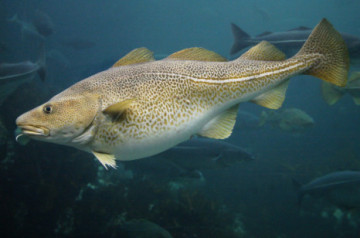 The cod isn’t just a fish to David Goethel. It’s his identity, his ticket to middle class life, his link to a historic industry. “I paid for my education, my wife’s education, my house, my kids’ education; my slice of America was paid for on cod,” said Goethel, a 30-year veteran of waters that once teemed with New England’s signature fish. But on a chilly, windy Saturday in April, after 12 hours out in the Gulf of Maine, he has caught exactly two cod, and he feels far removed from the 1990s, when he could catch 2,000 pounds in a day. The US fishing fleet has dwindled from more than 120,000 vessels in 1996 to about 75,000 today, the Coast Guard says. For the fishermen of the northeastern US – not all of whom accept the scientific consensus on climate change, and many of whom bristle at government regulations stemming from it – whether to stick with fishing, adapt to the changing ocean or leave the business is a constant worry. Robert Bradfield was one of the East Coast’s most endangered species, a Rhode Island lobsterman, until he pulled his traps out of the water for the last time about a decade ago. Read the rest here 09:30
The cod isn’t just a fish to David Goethel. It’s his identity, his ticket to middle class life, his link to a historic industry. “I paid for my education, my wife’s education, my house, my kids’ education; my slice of America was paid for on cod,” said Goethel, a 30-year veteran of waters that once teemed with New England’s signature fish. But on a chilly, windy Saturday in April, after 12 hours out in the Gulf of Maine, he has caught exactly two cod, and he feels far removed from the 1990s, when he could catch 2,000 pounds in a day. The US fishing fleet has dwindled from more than 120,000 vessels in 1996 to about 75,000 today, the Coast Guard says. For the fishermen of the northeastern US – not all of whom accept the scientific consensus on climate change, and many of whom bristle at government regulations stemming from it – whether to stick with fishing, adapt to the changing ocean or leave the business is a constant worry. Robert Bradfield was one of the East Coast’s most endangered species, a Rhode Island lobsterman, until he pulled his traps out of the water for the last time about a decade ago. Read the rest here 09:30
Fisherman appeals case shifting monitor costs
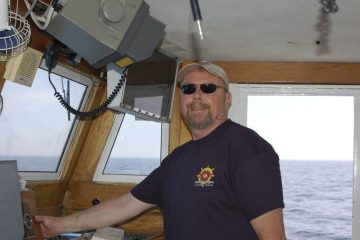 New Hampshire fisherman David Goethel is looking to the federal appeals court to overturn a federal judge’s ruling that allows NOAA Fisheries to impose the cost of at-sea monitoring on Northeast groundfish permit holders. Goethel, represented by lawyers from the Cause of Action watchdog group, has filed an appeal with the First Circuit Court of Appeals in Boston, hoping to reverse U.S. District Court Judge Joseph Laplante’s July 29 ruling in Goethel’s lawsuit that granted summary judgment to the federal government. “NOAA lacks the authority to require industry funding for at-sea monitors. Its decision to do so violates federal statutes and the Constitution,” said Alfred Lechner Jr., president and chief executive officer of Cause of Action as well as a former federal judge. “Our clients had a legal right to their day in court at the time they filed suit. The decision holding otherwise is an error. An appeal from the decision of the district court has been filed.” Read the story here 08:13
New Hampshire fisherman David Goethel is looking to the federal appeals court to overturn a federal judge’s ruling that allows NOAA Fisheries to impose the cost of at-sea monitoring on Northeast groundfish permit holders. Goethel, represented by lawyers from the Cause of Action watchdog group, has filed an appeal with the First Circuit Court of Appeals in Boston, hoping to reverse U.S. District Court Judge Joseph Laplante’s July 29 ruling in Goethel’s lawsuit that granted summary judgment to the federal government. “NOAA lacks the authority to require industry funding for at-sea monitors. Its decision to do so violates federal statutes and the Constitution,” said Alfred Lechner Jr., president and chief executive officer of Cause of Action as well as a former federal judge. “Our clients had a legal right to their day in court at the time they filed suit. The decision holding otherwise is an error. An appeal from the decision of the district court has been filed.” Read the story here 08:13
Appeal filed asking the court to overturn U.S. District Court Judge Joseph LaPlante’s July 29 at-sea monitor decision
 A fisherman is appealing a federal judge’s decision to allow the government to continue forcing fishermen to pay for at-sea monitors. Hampton fisherman, David Goethel, filed the appeal Sept. 6 and was joined by the Northeast Fishery Sector 13, which represents fishermen from Massachusetts to North Carolina. They are asking the court to overturn U.S. District Court Judge Joseph LaPlante’s July 29 decision that said the National Oceanic and Atmospheric Association was within its constitutional rights to force Northeast ground fishermen to pay for the monitors. Goethel and the fishery sector filed their original lawsuit last December, claiming it was unconstitutional for NOAA to require the industry to fund the monitors, which join fishermen on a percentage of fishing trips each year and cost approximately $700 per each of those days. Read the rest here 13:25
A fisherman is appealing a federal judge’s decision to allow the government to continue forcing fishermen to pay for at-sea monitors. Hampton fisherman, David Goethel, filed the appeal Sept. 6 and was joined by the Northeast Fishery Sector 13, which represents fishermen from Massachusetts to North Carolina. They are asking the court to overturn U.S. District Court Judge Joseph LaPlante’s July 29 decision that said the National Oceanic and Atmospheric Association was within its constitutional rights to force Northeast ground fishermen to pay for the monitors. Goethel and the fishery sector filed their original lawsuit last December, claiming it was unconstitutional for NOAA to require the industry to fund the monitors, which join fishermen on a percentage of fishing trips each year and cost approximately $700 per each of those days. Read the rest here 13:25
East Coast fishermen spar with federal government over cost of at-sea monitors
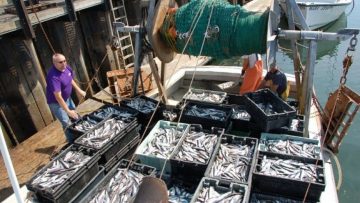 Every year, the federal government spends millions monitoring New England commercial fishermen to ensure they ply their timeless maritime trade in accordance with the law. Now, a judge is set to rule on who should foot the bill for the on-board monitors: the government or the fishing boat owners. The East Coast fishermen say sticking them with the bill would be the “death knell” for their industry and is illegal on the part of the federal government. Fishermen of important New England food species such as cod and haddock will have to start paying the cost of at-sea monitors soon under new rules. Monitors — third-party workers hired to observe fishermen’s compliance with federal regulations — collect data to help determine future fishing quotas and can cost about $18,000 a year, or $710 per voyage. “It is unlawful for NOAA to force struggling fishermen to pay for their own at-sea monitors,” said former federal judge Alfred Lechner, the institute’s president and CEO. “The significant costs of these regulations should be the responsibility of the government.” Read the rest here 08:57
Every year, the federal government spends millions monitoring New England commercial fishermen to ensure they ply their timeless maritime trade in accordance with the law. Now, a judge is set to rule on who should foot the bill for the on-board monitors: the government or the fishing boat owners. The East Coast fishermen say sticking them with the bill would be the “death knell” for their industry and is illegal on the part of the federal government. Fishermen of important New England food species such as cod and haddock will have to start paying the cost of at-sea monitors soon under new rules. Monitors — third-party workers hired to observe fishermen’s compliance with federal regulations — collect data to help determine future fishing quotas and can cost about $18,000 a year, or $710 per voyage. “It is unlawful for NOAA to force struggling fishermen to pay for their own at-sea monitors,” said former federal judge Alfred Lechner, the institute’s president and CEO. “The significant costs of these regulations should be the responsibility of the government.” Read the rest here 08:57
Fading fishermen: A historic industry faces a warming world
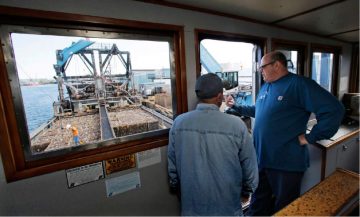 The cod isn’t just a fish to David Goethel. It’s his identity, his ticket to middle-class life, his link to a historic industry. Robert Bradfield was one of the East Coast’s most endangered species, a Rhode Island lobsterman, until he pulled his traps out of the water for the last time about a decade ago. Michael Mohr harvested surf clams for almost 30 of his 55 years, and his desire to stay in the business takes him far from his family. For the fishermen of the northeastern U.S., whether to stick with fishing, adapt to the changing ocean or leave the business is a constant worry. Read the story here 13:56
The cod isn’t just a fish to David Goethel. It’s his identity, his ticket to middle-class life, his link to a historic industry. Robert Bradfield was one of the East Coast’s most endangered species, a Rhode Island lobsterman, until he pulled his traps out of the water for the last time about a decade ago. Michael Mohr harvested surf clams for almost 30 of his 55 years, and his desire to stay in the business takes him far from his family. For the fishermen of the northeastern U.S., whether to stick with fishing, adapt to the changing ocean or leave the business is a constant worry. Read the story here 13:56
Judge requests additional briefs and memoranda concerning at-sea monitoring lawsuit
 The final judgment in New Hampshire fisherman David Goethel’s federal lawsuit against NOAA Fisheries concerning at-sea monitoring will be further delayed after the judge in the case requested additional briefs and memoranda from both sides. “In consideration of the parties’ cross motions for summary judgment and conducting the attending legal research, the court has identified points, authorities and (to some extent) arguments that were unfortunately not cited or raised by the parties’ legal memoranda,” U.S. District Court Judge Joseph Laplante wrote in his procedural order. Prior to ordering the supplemental filings, Laplante, who sits in U.S. District Court in Concord, New Hampshire, held a June 9 conference call with attorneys to discuss “whether, and the extent to which, any delay caused by additional briefing would increase, extend or intensify any claimed economic hardship” from the federal mandate shifting the costs of at-sea monitoring to the industry. Read the rest here 21:05
The final judgment in New Hampshire fisherman David Goethel’s federal lawsuit against NOAA Fisheries concerning at-sea monitoring will be further delayed after the judge in the case requested additional briefs and memoranda from both sides. “In consideration of the parties’ cross motions for summary judgment and conducting the attending legal research, the court has identified points, authorities and (to some extent) arguments that were unfortunately not cited or raised by the parties’ legal memoranda,” U.S. District Court Judge Joseph Laplante wrote in his procedural order. Prior to ordering the supplemental filings, Laplante, who sits in U.S. District Court in Concord, New Hampshire, held a June 9 conference call with attorneys to discuss “whether, and the extent to which, any delay caused by additional briefing would increase, extend or intensify any claimed economic hardship” from the federal mandate shifting the costs of at-sea monitoring to the industry. Read the rest here 21:05
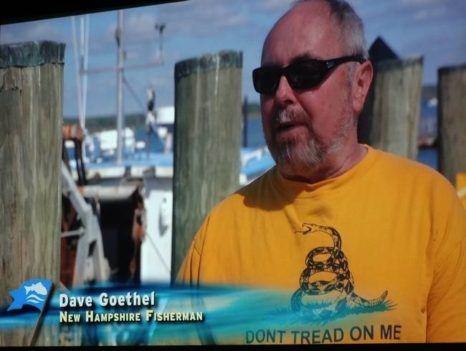
9PM TONIGHT ON PBS – ‘Saving New England Fisheries’
New England fishermen get a break on monitoring costs
 Commercial groundfishermen had their projected cost for at-sea monitoring cut in half this year, but fishermen say it is still unfair they’re forced to pay for policing of their own work. NOAA lightened the fishermen’s burden because data shows the federal agency can obtain adequate information on fish populations with less monitoring coverage than initially determined. Fishermen have said it is unconstitutional for NOAA to force them to pay for their own policing. Hampton fisherman David Goethel said NOAA’s reduction in coverage is not enough to satisfy fishermen. “It’s obviously an improvement,” Goethel said, “But it still doesn’t alleviate the big problem, which is we shouldn’t be paying at all.” Read the rest here 08:15
Commercial groundfishermen had their projected cost for at-sea monitoring cut in half this year, but fishermen say it is still unfair they’re forced to pay for policing of their own work. NOAA lightened the fishermen’s burden because data shows the federal agency can obtain adequate information on fish populations with less monitoring coverage than initially determined. Fishermen have said it is unconstitutional for NOAA to force them to pay for their own policing. Hampton fisherman David Goethel said NOAA’s reduction in coverage is not enough to satisfy fishermen. “It’s obviously an improvement,” Goethel said, “But it still doesn’t alleviate the big problem, which is we shouldn’t be paying at all.” Read the rest here 08:15
Thursday: Challenges facing New England’s commercial fishing industry topic of public forum at RI College
A panel of government regulators, scientists, environmental advocates and fishermen will try to answer questions about the future of one of New England’s most iconic and important industries at a forum this Thursday. The event, which is free and open to the public, runs from 6 to 8 p.m. at Sapinsley Hall in the Nazarian Center for the Performing Arts at Rhode Island College. The panel will include: John Bullard, regional administrator with NOAA’s Northeast Regional Office; Graham Forrester, professor in the Department of Natural Resources Science at the University of Rhode Island; Erica Fuller, senior associate attorney with Earth Justice; Matt Tinning, senior director, U.S. Oceans Program, Environmental Defense Fund; David Goethel, captain and owner of the Ellen Diane; Mark Phillips, captain and owner of FV Illusion; and Daniel Georgianna, Chancellor professor of economics at the University of Massachusetts Dartmouth. Read the rest here 12:40
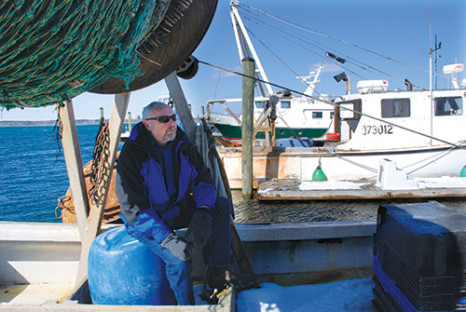
On the hook-At-sea monitoring fees are the latest threat to NH’s dwindling fishing industry
Working as both a biologist and a fisherman, David Goethel brings a unique perspective to the state and federal fishery management boards he’s an adviser on. “I’ve spent all my life acting as a translator because they speak all different languages,” says Goethel, who worked as a research biologist at the New England Aquarium before he became the owner and operator of the Ellen Diane, a 44-foot fishing trawler based out of Hampton. But the most recent disconnect between the factions has resulted in Goethel and other groundfishermen filing a federal lawsuit. Read the article, Click here 07:51
Should catch share management be indicted in the Carlos Seafood case? – David Goethel
 According to accusations from Federal investigators, the seafood business run by Carlos Rafael “laundered” fish to evade quotas, sold fish for cash to evade taxes, and cheated captains and crews by paying them for lower-valued fish than what they landed. These are serious criminal accusations, but they also raise a disturbing question: Is the system known as “catch shares” at least in part responsible for what occurred? Catch shares are a system of managing fish where fishermen are given fixed quota for each species, which they can either catch or lease. Read the rest here 07:25
According to accusations from Federal investigators, the seafood business run by Carlos Rafael “laundered” fish to evade quotas, sold fish for cash to evade taxes, and cheated captains and crews by paying them for lower-valued fish than what they landed. These are serious criminal accusations, but they also raise a disturbing question: Is the system known as “catch shares” at least in part responsible for what occurred? Catch shares are a system of managing fish where fishermen are given fixed quota for each species, which they can either catch or lease. Read the rest here 07:25
Moving Forward: Fishermen await trial on NOAA monitors mandate
 Local fisherman David Goethel said he hopes a court ruling comes soon to determine the legality of a new federal mandate, as he and other fishermen are fearful they will go under before the trial begins. Goethel said he may sell his fishing boat after this summer if the trial isn’t resolved by then. He filed the lawsuit causing the trial, challenging the National Oceanic and Atmospheric Administration’s plan to make fishermen pay for their own policing. He filed it in conjunction with a fishing sector based in Massachusetts. While Goethel said he might personally consider retirement this year, he still feels strongly about going forward with the trial to prevent a new precedent for the fishing industry. Read the article here 10:48
Local fisherman David Goethel said he hopes a court ruling comes soon to determine the legality of a new federal mandate, as he and other fishermen are fearful they will go under before the trial begins. Goethel said he may sell his fishing boat after this summer if the trial isn’t resolved by then. He filed the lawsuit causing the trial, challenging the National Oceanic and Atmospheric Administration’s plan to make fishermen pay for their own policing. He filed it in conjunction with a fishing sector based in Massachusetts. While Goethel said he might personally consider retirement this year, he still feels strongly about going forward with the trial to prevent a new precedent for the fishing industry. Read the article here 10:48
UPDATED: Fishermen denied request to stop at-sea monitor costs
A judge has denied a request from East Coast fishermen to stop the federal government’s plan to hand them the cost of at-sea monitoring. Fishermen of New England food species such as cod and haddock will have to start paying the cost of at-sea monitors March 1 under new rules. Monitors collect data to help determine future fishing quotas and can cost about $800 per day. The challenge was the subject of a hearing at U.S. District Court in Concord last week. Judge Joseph Laplante denied the request Wednesday, saying it’s barred under the law. Read the rest here 16:01
Governor Kasich and the New Hampshire Fishermen
 When John Kasich tells you that he is a skilled executive, believe him. Governor Kasich met with several New Hampshire fishermen on 8 January. David Goethel, owner and captain of the 44-foot fishing trawler Ellen Diane, is suing NOAA (the National Oceanic and Atmospheric Administration) for bureaucratic overreach and has explained his position in a Wall Street Journal op-ed. Governor Kasich read the op-ed and as a result requested the meeting. This was not a campaign stop. Nobody took names for a mailing list; nobody handed out bumper stickers. The governor was there to learn and to help. Read the article here 09:06
When John Kasich tells you that he is a skilled executive, believe him. Governor Kasich met with several New Hampshire fishermen on 8 January. David Goethel, owner and captain of the 44-foot fishing trawler Ellen Diane, is suing NOAA (the National Oceanic and Atmospheric Administration) for bureaucratic overreach and has explained his position in a Wall Street Journal op-ed. Governor Kasich read the op-ed and as a result requested the meeting. This was not a campaign stop. Nobody took names for a mailing list; nobody handed out bumper stickers. The governor was there to learn and to help. Read the article here 09:06
Fishermen await decision about at-sea monitoring lawsuit
 CONCORD, N.H. (AP) — East Coast fishermen are awaiting a judge’s decision about their contention that the federal government’s plan to hand them the cost of at-sea monitoring is illegal. The fishermen’s challenge was the subject of a hearing at U.S. District Court in Concord on Thursday. The judge didn’t issue an order from the bench, so a decision is expected in the future. Link 17:39
CONCORD, N.H. (AP) — East Coast fishermen are awaiting a judge’s decision about their contention that the federal government’s plan to hand them the cost of at-sea monitoring is illegal. The fishermen’s challenge was the subject of a hearing at U.S. District Court in Concord on Thursday. The judge didn’t issue an order from the bench, so a decision is expected in the future. Link 17:39
Why is it wrong for the fishermen to bring a lawsuit but is alright for Mr. Shelly’s CLF to profit from lawsuits?
 CLF’s Peter Shelley at Talking Fish wrote: Blowing Up the New England Fishery Management Council. He won’t post the rebuttal comments but we will!
CLF’s Peter Shelley at Talking Fish wrote: Blowing Up the New England Fishery Management Council. He won’t post the rebuttal comments but we will!
Comment on Talking Fish that doesn’t seem to be accepted. Mr. Shelly and CLF make a living from suing NOAA and fishing for dollars. For that they get nonprofit tax status. So the taxpayers pay twice 1) for nonprofit status and 2) because they file so many lawsuits they win by default (a scam all NGOs have perfected). Unlike fishermen who do pay taxes and support local economies. Contrary to Mr. Shelly’s claim the majority of people on the councils are not fishermen, and one of the so called fishermen that is on the council is a paid spokesman for the ENGOs (John Pappalardo).
Fishermen in court to protest at-sea monitoring cost shift
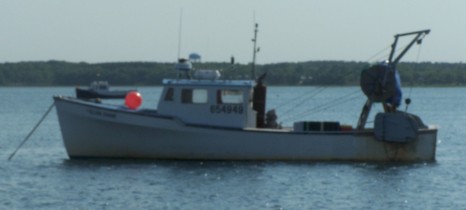 A group of East Coast fishermen who are challenging the federal government about the cost of at-sea monitoring is due for a hearing in court. New England fishermen will have to start paying the cost of at-sea monitors soon under new rules. Fishermen challenging the rules are due in U.S. District Court in Concord on Thursday for a hearing on their motion for an injunction. At-sea monitors collect data to help determine future fishing quotas. The monitors can cost about $800 per trip. A group of fishermen contends that the cost shift is illegal. One of the fishermen involved in the lawsuit is Hampton, New Hampshire-based David Goethel. He says many fishermen won’t be able to afford the added cost. Link 07:59
A group of East Coast fishermen who are challenging the federal government about the cost of at-sea monitoring is due for a hearing in court. New England fishermen will have to start paying the cost of at-sea monitors soon under new rules. Fishermen challenging the rules are due in U.S. District Court in Concord on Thursday for a hearing on their motion for an injunction. At-sea monitors collect data to help determine future fishing quotas. The monitors can cost about $800 per trip. A group of fishermen contends that the cost shift is illegal. One of the fishermen involved in the lawsuit is Hampton, New Hampshire-based David Goethel. He says many fishermen won’t be able to afford the added cost. Link 07:59
Friend Don Cuddy joins WBSM’s Phil Paleologos at 10am to discuss AS Monitor law suit and bad science
 Don and John Haran will join Phil in the studio. David Goethel, and Richie Canastra, will join in over the phone. As Phil writes in Government Using Bad Science, “On Wednesday, the spotlight is on the fishermen paying for monitors that could likely put the fishermen out of business. There is a lawsuit challenging the government’s authority to impose that requirement. On January 13, at 10 am, four experts will join me to discuss topics that apply to the fishing industry in 2016. This program promises to shed sunlight on problems that are drowning the fishing industry”. Call-in number for listeners is 508-996-0500. Click here@ 10:00 and click Listen Live 18:46
Don and John Haran will join Phil in the studio. David Goethel, and Richie Canastra, will join in over the phone. As Phil writes in Government Using Bad Science, “On Wednesday, the spotlight is on the fishermen paying for monitors that could likely put the fishermen out of business. There is a lawsuit challenging the government’s authority to impose that requirement. On January 13, at 10 am, four experts will join me to discuss topics that apply to the fishing industry in 2016. This program promises to shed sunlight on problems that are drowning the fishing industry”. Call-in number for listeners is 508-996-0500. Click here@ 10:00 and click Listen Live 18:46
Republican presidential candidate John Kasich to meet with N.H. fishermen
 The Ohio governor will meet privately with commercial and recreational fishermen and industry members from 3 to 4 p.m. at Yankee Fisherman’s Cooperative after he holds a noon town hall event at the Lane Memorial Library in Hampton. Kasich became aware of the fishermen’s concern about regulations via a Wall Street Journal op-ed written by David Goethel. The op-ed ran Dec. 27 and detailed Goethel’s current federal lawsuit against the U.S. Department of Commerce and the National Oceanic and Atmospheric Administration. Read the article here 16:18
The Ohio governor will meet privately with commercial and recreational fishermen and industry members from 3 to 4 p.m. at Yankee Fisherman’s Cooperative after he holds a noon town hall event at the Lane Memorial Library in Hampton. Kasich became aware of the fishermen’s concern about regulations via a Wall Street Journal op-ed written by David Goethel. The op-ed ran Dec. 27 and detailed Goethel’s current federal lawsuit against the U.S. Department of Commerce and the National Oceanic and Atmospheric Administration. Read the article here 16:18
Our View: New England Fishery Management Council needs to take a new tack
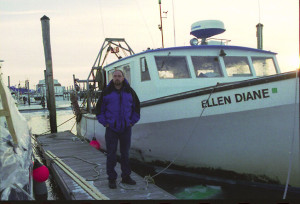 A New Hampshire cod fisherman has sued the National Oceanic and Atmospheric and Administration over the hardship looming when he is required to pay for at-sea monitors. Monitors are required on a certain percentage of fishing vessels to satisfy regulations meant to reduce waste of the resource at sea and protect the fishery. David Goethel’s suit is appropriate mainly because he puts his boat into a fishery that was declared a disaster in 2012 by the Commerce Department, NOAA’s parent. Fish biomass for several species, including cod and some flounders, has rapidly eroded the opportunity for success for groundfishermen like him. Read the op-ed here 11:10
A New Hampshire cod fisherman has sued the National Oceanic and Atmospheric and Administration over the hardship looming when he is required to pay for at-sea monitors. Monitors are required on a certain percentage of fishing vessels to satisfy regulations meant to reduce waste of the resource at sea and protect the fishery. David Goethel’s suit is appropriate mainly because he puts his boat into a fishery that was declared a disaster in 2012 by the Commerce Department, NOAA’s parent. Fish biomass for several species, including cod and some flounders, has rapidly eroded the opportunity for success for groundfishermen like him. Read the op-ed here 11:10
Over-regulation threatens New England fishing industry
 New Hampshire fishermen locked horns with a federal agency this year over fishing regulations and mandatory costs they said would put them out of business for good. The fight ultimately led to a federal lawsuit filed in December against the National Oceanic and Atmospheric Administration, which oversees the nation’s fisheries. The suit challenged the legality of NOAA’s intent to make fishermen pay for observers to monitor their compliance with federal regulations. Fishermen said it was unfair they would be forced to pay for their own policing. Read the article here 11:25
New Hampshire fishermen locked horns with a federal agency this year over fishing regulations and mandatory costs they said would put them out of business for good. The fight ultimately led to a federal lawsuit filed in December against the National Oceanic and Atmospheric Administration, which oversees the nation’s fisheries. The suit challenged the legality of NOAA’s intent to make fishermen pay for observers to monitor their compliance with federal regulations. Fishermen said it was unfair they would be forced to pay for their own policing. Read the article here 11:25
Fishermen on the Hook to Pay for Their Own Regulators
 Few professions are as significant to New England’s economy and history as fishing. Yet the ranks of groundfish fishermen have dwindled so much that we’re now an endangered species. The causes are many—but the one now threatening us with extinction is the federal government. Along with one other plaintiff, I’m suing the National Oceanic and Atmospheric Administration to stop it from sinking New England’s groundfish industry for good. Read the article here by David Goethel. 09:11
Few professions are as significant to New England’s economy and history as fishing. Yet the ranks of groundfish fishermen have dwindled so much that we’re now an endangered species. The causes are many—but the one now threatening us with extinction is the federal government. Along with one other plaintiff, I’m suing the National Oceanic and Atmospheric Administration to stop it from sinking New England’s groundfish industry for good. Read the article here by David Goethel. 09:11
Discard Mortality: What happens when a fisherman tosses a fish back overboard? It’s not a frivolous question.
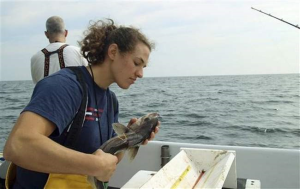 What happens when a fisherman tosses a fish back overboard? It’s not a frivolous question. The government bases catch quotas and other rules in part on the mortality of tossed fish, and there isn’t always accurate data available about how many fish survive the fling. Now, a group of New England scientists says it’s finding that a surprisingly high percentage of the lucky fish might live to swim another day. Read the article here 08:44
What happens when a fisherman tosses a fish back overboard? It’s not a frivolous question. The government bases catch quotas and other rules in part on the mortality of tossed fish, and there isn’t always accurate data available about how many fish survive the fling. Now, a group of New England scientists says it’s finding that a surprisingly high percentage of the lucky fish might live to swim another day. Read the article here 08:44
Cod and costs: Lawsuit says groundfishing industry will collapse under cost of new federal mandate
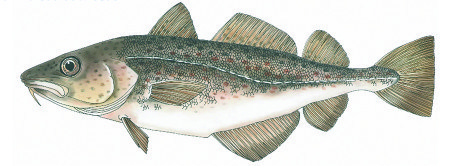 Maine fishermen would be among those hardest hit by a new federal mandate that requires groundfishing boat captains to pay for at-sea monitors, critics say. The at-sea monitors are federally mandated enforcement contractors who can cost upwards of $700 a day, according to litigants in a new lawsuit against the federal government. In Maine, Portland is a major port for ground fishermen, but more remote places such as Cundy’s Harbor out of Harpswell would be affected as well, said New Hampshire fisherman David Goethel, plaintiff in the new case against the U.S. Department of Commerce. Read the article here 17:11
Maine fishermen would be among those hardest hit by a new federal mandate that requires groundfishing boat captains to pay for at-sea monitors, critics say. The at-sea monitors are federally mandated enforcement contractors who can cost upwards of $700 a day, according to litigants in a new lawsuit against the federal government. In Maine, Portland is a major port for ground fishermen, but more remote places such as Cundy’s Harbor out of Harpswell would be affected as well, said New Hampshire fisherman David Goethel, plaintiff in the new case against the U.S. Department of Commerce. Read the article here 17:11

































